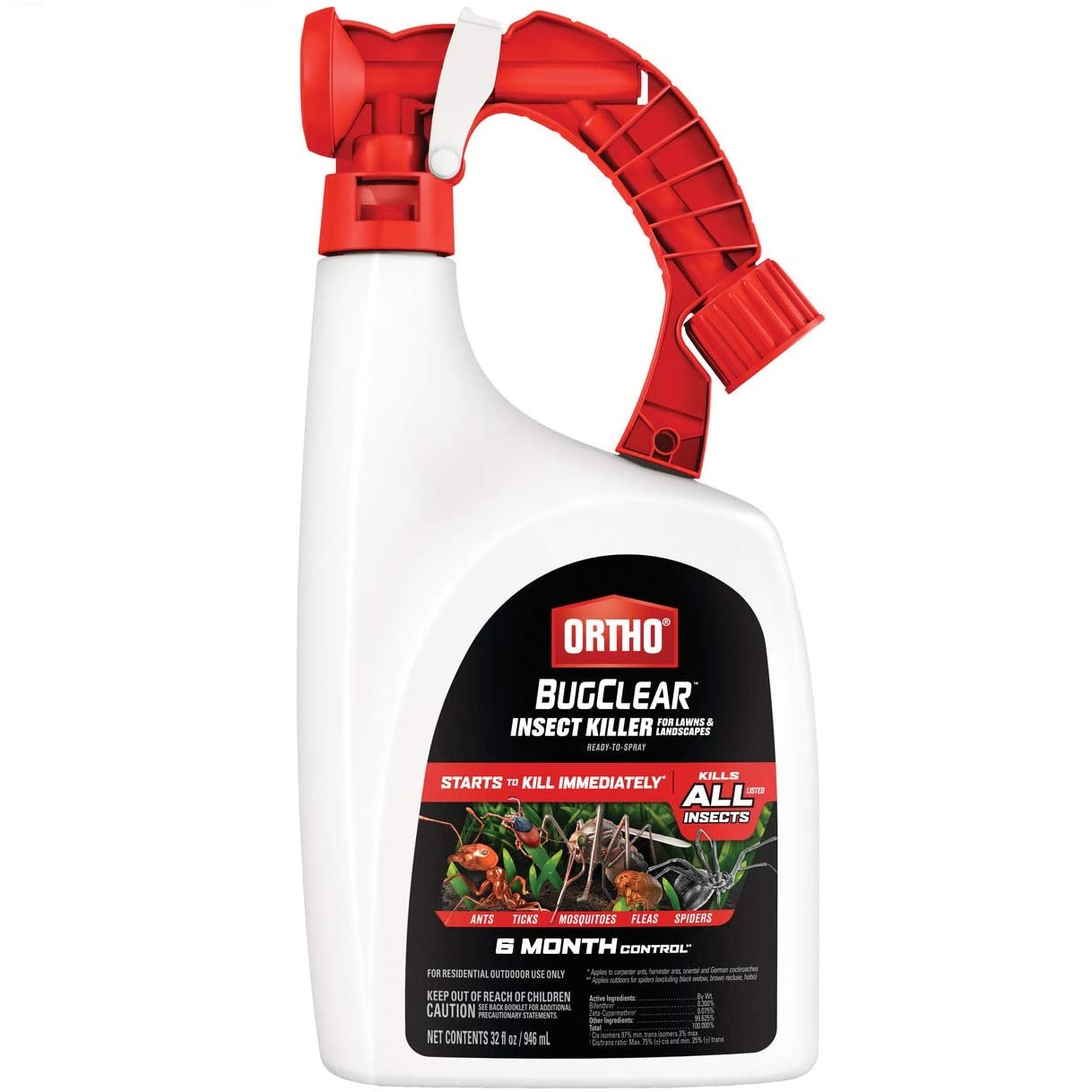
- Ortho
- Other Insects, Outdoor Bug
- Item Weight 2.4 pounds
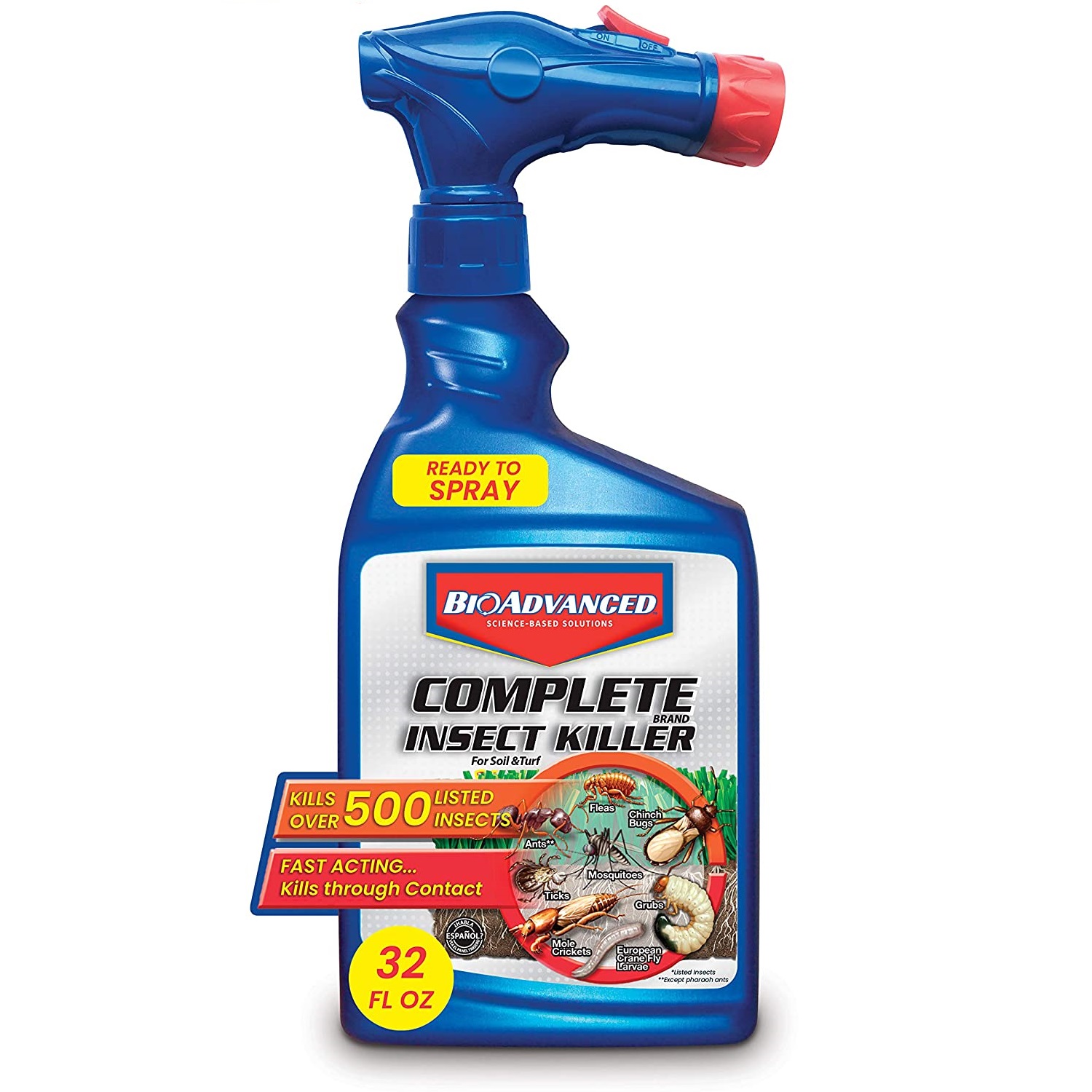
- BAYER CROP SCIENCE
- 32 oz
- Ready-to-Spray
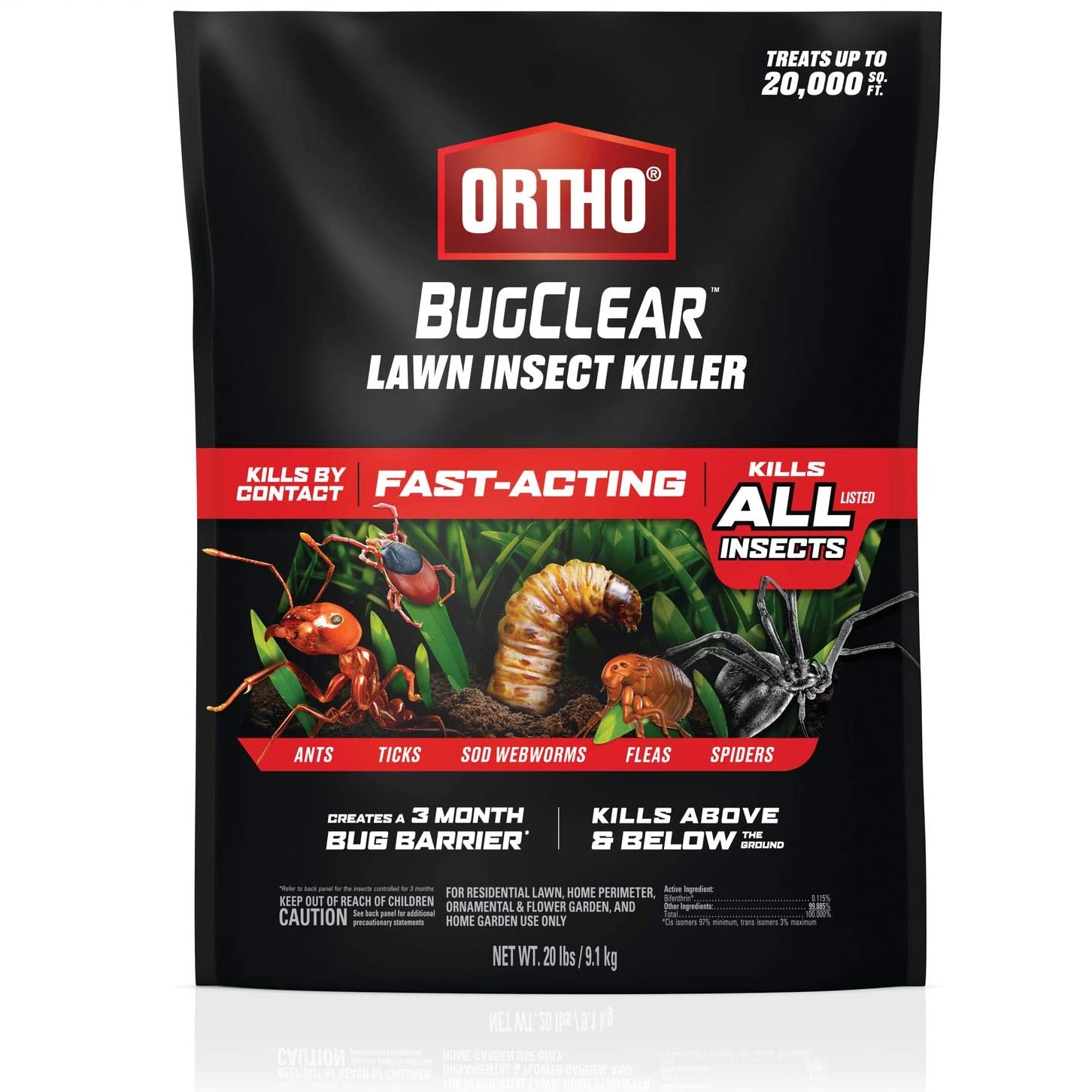
- Item Weight 19.06 pounds
- 18 x 12 x 4 inches
- Ortho
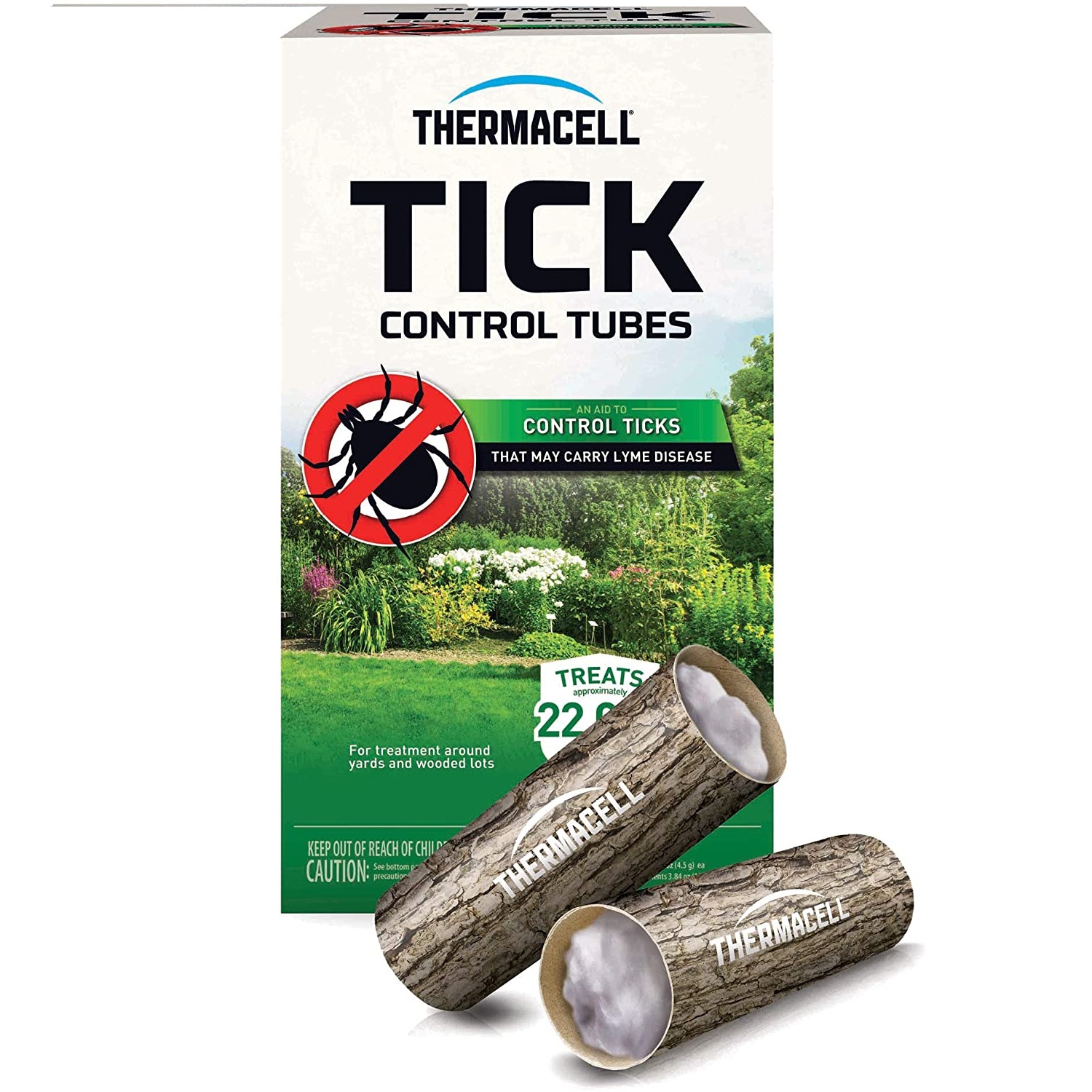
- Protects 1 Acre from Ticks
- Tick Repellent
- 1.5 Pounds
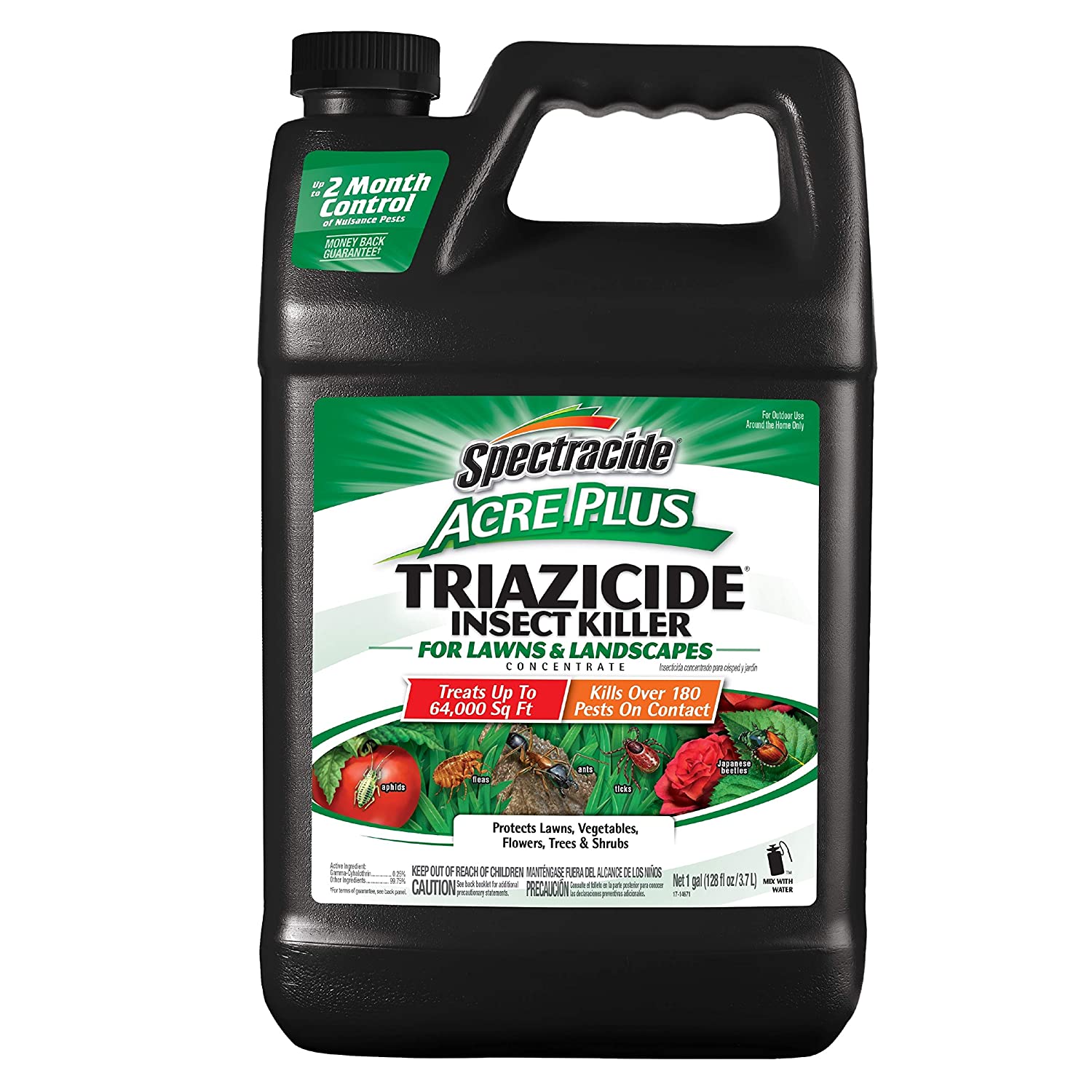
- Spectracide
- Color Brown/A
- 1 inches
Choose the Best Tick Killer for Lawn
Customer’s Choice: the Best Rated Tick Killers for Lawns
34 users answered this survey. Please help us improve this review!
Do you have a problem with ticks in your yard? If so, you’re not alone. Ticks can be a huge nuisance, and they can also transmit diseases to both humans and pets. In this article, we will discuss the best tick killers for lawns and provide you with some useful tips on how to use them. We’ll also provide product reviews of some of the most popular tick killers on the market. Read on to learn more!
Table of Contents
Ortho Outdoor Insect Killer Spray for Lawns, 32 oz.
 Ortho Killer Spray is the perfect way to keep your lawn bug-free all summer long. This ready-to-use spray can be applied easily and provides long-lasting control of 235 different types of bugs.
Ortho Killer Spray is the perfect way to keep your lawn bug-free all summer long. This ready-to-use spray can be applied easily and provides long-lasting control of 235 different types of bugs.
BAYER Soil Turf Easy To Use Tick Lawn Killer, 32 oz
 Do you want to get rid of irritating ticks and grubs on your lawn without producing any odors? The BAYER Tick Lawn Killer is the solution for your lawn’s health. This product will provide you with three months of protection against insects, and is safe to use on soil and turf lawns. Plus, it kills mosquitoes too!
Do you want to get rid of irritating ticks and grubs on your lawn without producing any odors? The BAYER Tick Lawn Killer is the solution for your lawn’s health. This product will provide you with three months of protection against insects, and is safe to use on soil and turf lawns. Plus, it kills mosquitoes too!
Ortho Ticks and Spiders Effective BugClear Insect Killer, 20 lb.
 Are you looking for a method to get rid of ticks and spiders that is both safe and effective? Ortho Ticks and Spiders Killer is the ideal solution for preventing tick and spider problems. This powerful insecticide quickly kills ticks and spiders on contact and also provides long-lasting protection against future infestations.
Are you looking for a method to get rid of ticks and spiders that is both safe and effective? Ortho Ticks and Spiders Killer is the ideal solution for preventing tick and spider problems. This powerful insecticide quickly kills ticks and spiders on contact and also provides long-lasting protection against future infestations.
It’s easy to use too – simply apply this granular insecticide around your foundation and yard, and you’ll create a bug-free haven. Plus, it provides up to 20,000 square feet of coverage, making it ideal for large lawns and gardens. The bag can be a little deceptive because it’s not big enough to accommodate all the bugs it eliminates. Also, it is not a Grubb control spray. So don’t let these pests ruin your summer fun – pick up a bottle of Ortho Insect Killer today.
Thermacell Backyards No Spray Eco-Friendly Tick Control Tubes
 Don’t let pesky deer ticks ruin your summer! Thermacell’s Tick Control Tubes are the easy, mess-free way to keep them at bay. Simply insert a tick control tube into your yard and watch the deer ticks disappear.
Don’t let pesky deer ticks ruin your summer! Thermacell’s Tick Control Tubes are the easy, mess-free way to keep them at bay. Simply insert a tick control tube into your yard and watch the deer ticks disappear.
Spectracide Fast Active Insect Lawn Killer for Landscapes, 1-Gallon
 Do you need a fast-acting, effective solution to remove pests from your garden? Get rid of your pests with a product like Spectracide Insect Killer! This powerful formula quickly and efficiently kills over 180 different types of pests, including fleas, mosquitoes, and other insects.
Do you need a fast-acting, effective solution to remove pests from your garden? Get rid of your pests with a product like Spectracide Insect Killer! This powerful formula quickly and efficiently kills over 180 different types of pests, including fleas, mosquitoes, and other insects.
Tick Killers Buying Guide
What are Ticks?
Ticks are parasitic arachnids that primarily feed on the blood of mammals, birds, and sometimes reptiles and amphibians. Ticks are vectors of a number of diseases that can infect humans and animals, including Lyme disease, Rocky Mountain spotted fever, babesiosis, ehrlichiosis, tularemia, Texas tick fever, Powassan virus disease, and tick-borne relapsing fever.
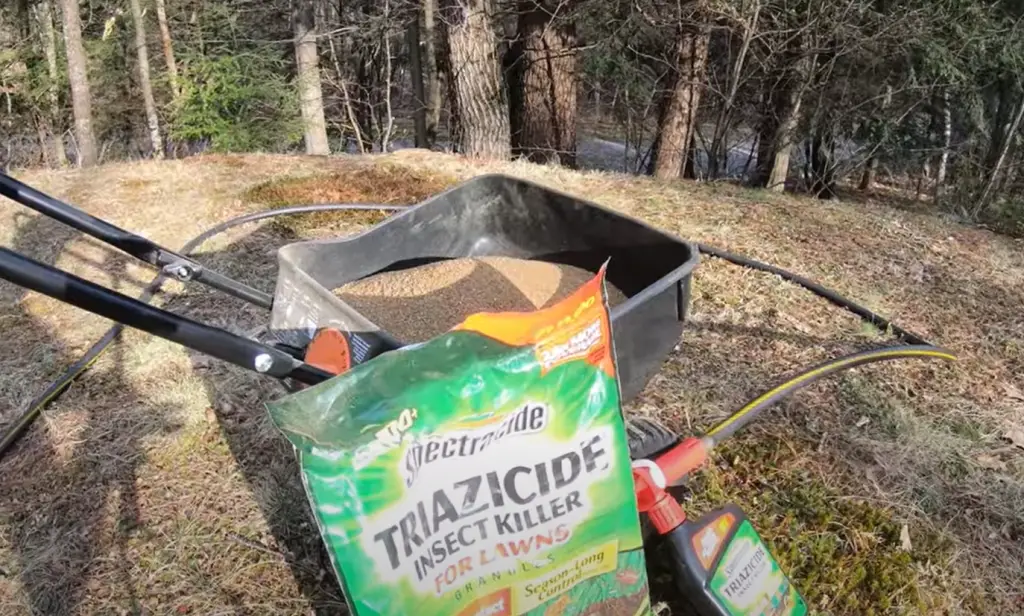
There are many different species of ticks found throughout the world. In the United States, the most common type of tick is the deer tick (Ixodes scapularis), which is found in wooded areas across the country. Deer ticks are known to transmit Lyme disease to humans.
Ticks live in tall grass and woods, waiting to attach themselves to a person or animal that brushes against them. Once they attach themselves, they will feed on their host’s blood for several days before falling off.
This is because ticks need warm weather (above freezing) to survive and reproduce. [1]Why is My Yard Always Infested with Ticks?
If you’re finding ticks in your yard on a regular basis, it could be due to a number of reasons. Maybe there are lots of trees and shrubs around your property that provide the perfect habitat for these pests. Or, if you live near a wooded area, wild animals could be bringing them onto your property.
Whatever the reason, if you’re dealing with a tick infestation, you’ll need to take action to get rid of them. The good news is that there are a number of effective tick killers on the market that can help. [2]
How Do I Check If My Yard Has Ticks?
The best way to check for ticks is to do a thorough inspection of your body after spending time outside in areas where they may be present. Look for small, dark spots that may be embedded in your skin. Ticks are often found around the waist, armpits, and hairline. If you find a tick on your body, remove it immediately with tweezers. Place the tick in a jar or container of rubbing alcohol to kill it.
If you suspect that there may be ticks in your yard, there are a few things you can do to check for their presence. First, look for signs of animals that might carry ticks into your yard, such as deer or mice. Second, inspect the perimeter of your property for areas of high grass or weeds where ticks could hide. Finally, check your outdoor furniture and gear for signs of ticks before bringing them into your home.
If you find any evidence of ticks in your yard, take action to remove them as soon as possible. The longer they are allowed to stay, the greater the risk they will pose to your health and the health of your family.
There are a few different products on the market that can help you get rid of ticks in your yard. Some products work by killing adult ticks, while others prevent eggs from hatching. Still, others create a barrier that keeps ticks from entering your property in the first place. Choose the product that meets your specific requirements and follow the directions carefully to minimize risks and achieve good results. [3]
Ticks in Your Yard: How to Prevent Them
Ticks are more than just a nuisance; they can transmit diseases to both humans and pets. Lyme disease is the most common of these, but ticks can also carry Rocky Mountain spotted fever, ehrlichiosis, anaplasmosis, and tularemia. And while tick bites are usually not painful, they can cause redness, swelling, and itching at the site.

The best way to prevent ticks in your yard is to keep them from getting there in the first place. Here are a few tips:
- Around your home, keep tall grasses and bushes at a reasonable distance. Ticks like to hide in these areas, waiting for a host to walk by so they can attach themselves. By keeping your lawn trimmed and neat, you’ll make it less inviting for ticks.
- Remove leaf litter and woodpiles. These are other prime tick hiding spots. If you must have them on your property, keep them as far away from your house as possible.
- Use a barrier spray around the perimeter of your yard. There are many commercially available products that will kill ticks on contact.Remember to follow the directions carefully and apply as directed by the manufacturer.
- Keep your pets tick-free. If your pets spend time outdoors, they can bring ticks into the house on their fur. Be sure to check them regularly for ticks and remove any you find promptly. You should also talk to your veterinarian about tick prevention products for animals.
By following these simple tips, you can help keep ticks out of your yard – and reduce the risk of tick-borne disease for you and your family. [4]
Types of Tick Killers
There are two main types of tick killers: chemical and natural.
When choosing a tick killer, it’s important to consider your needs and preferences. If you’re looking for an all-natural solution, there are plenty of great options available. However, if you’re looking for something that’s more effective, you may want to consider a chemical option. [5]
Safety
It is the number one priority when using any type of pesticide, and that includes tick killers. Here are some tips to follow when using these products:
- Read the label carefully and follow all directions.
- Wear gloves, long sleeves, and long pants when applying the product.
- Apply the product to dry grass and brush, avoiding wet or damp areas.
- Do not apply the product near water, such as lakes, streams, or ponds.
- Avoid applying the product during windy conditions.
- Wait until children and pets are out of the area before applying the product.
- Reapply the product according to the label instructions.
Proper Use of Tick Killers
To achieve the best results, it is important to follow the instructions on the product label. Some products are broadcasted or sprayed over an entire lawn while others are meant to target specific areas. Be sure to read and understand the directions before use.
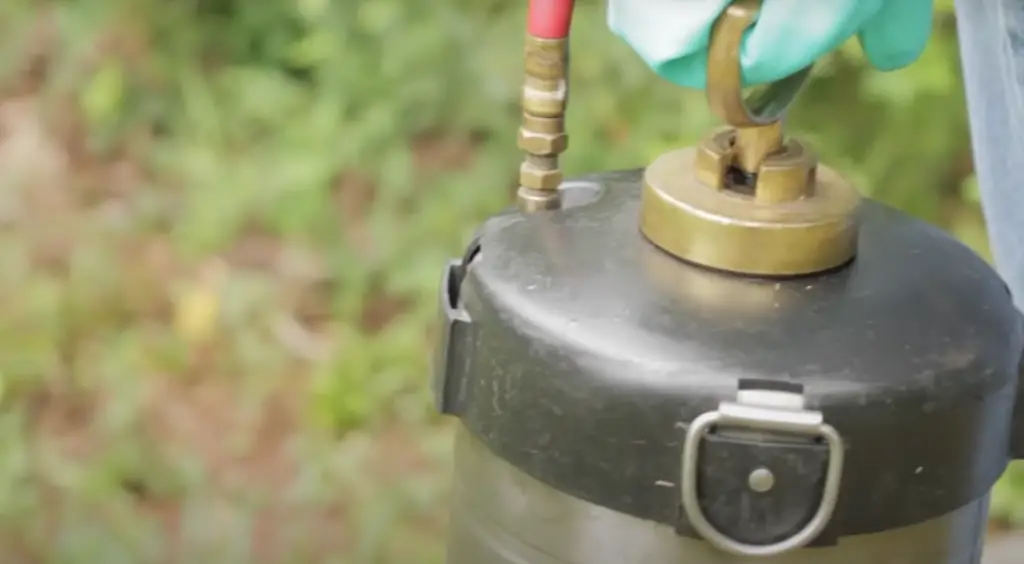
In addition, always remember to treat your lawn for ticks on a regular basis – at least once a month during warm weather months when they are most active. You may help your family stay free of tick-borne illnesses all year with just a few simple actions![6]
Using a Spray to Treat Your Yard for Ticks
If you’re looking for a fast and effective way to kill ticks in your yard, then using a spray is the best option. There are many different types of tick sprays available on the market, so it’s important to choose one that is specifically designed to kill ticks. Make sure to read the label carefully before purchasing a tick spray, as some of them may only be effective against certain types of ticks.
You’ll need to make sure that you treat all areas of your yard where ticks could potentially live. This includes tall grass, bushes, and trees. Once you’ve sprayed the entire area, you should allow it to dry completely before allowing your pets or children to play in the yard. Depending on the type of spray you use, it may need to be reapplied every few weeks to keep ticks away.
These usually contain ingredients like cedar oil or lemon juice, which can help to keep ticks away without harming your grass or plants. Natural tick repellents will need to be applied more often than chemical sprays, so keep that in mind when making your decision.Always make sure to follow the instructions carefully and store it out of reach of children and pets, no matter what kind of tick spray you choose.
Treating Your Pets for Ticks
Even if you treat your yard for ticks, your pets can still bring them into the house. That’s why it’s important to also use a tick treatment on your pets, like a spot-on treatment or collar. There are many different types of tick treatments available for both dogs and cats, so talk to your veterinarian about which one would be best for your pet.
Spot-on treatments are applied directly to your pet’s skin and contain chemicals that will kill ticks when they bite. These need to be applied every few weeks and can be purchased at most pet stores or online. Tick collars work in a similar way, but as the name suggests, they’re placed around your pet’s neck like a regular collar. Some tick collars also contain insecticide, which can help to repel ticks and other pests.
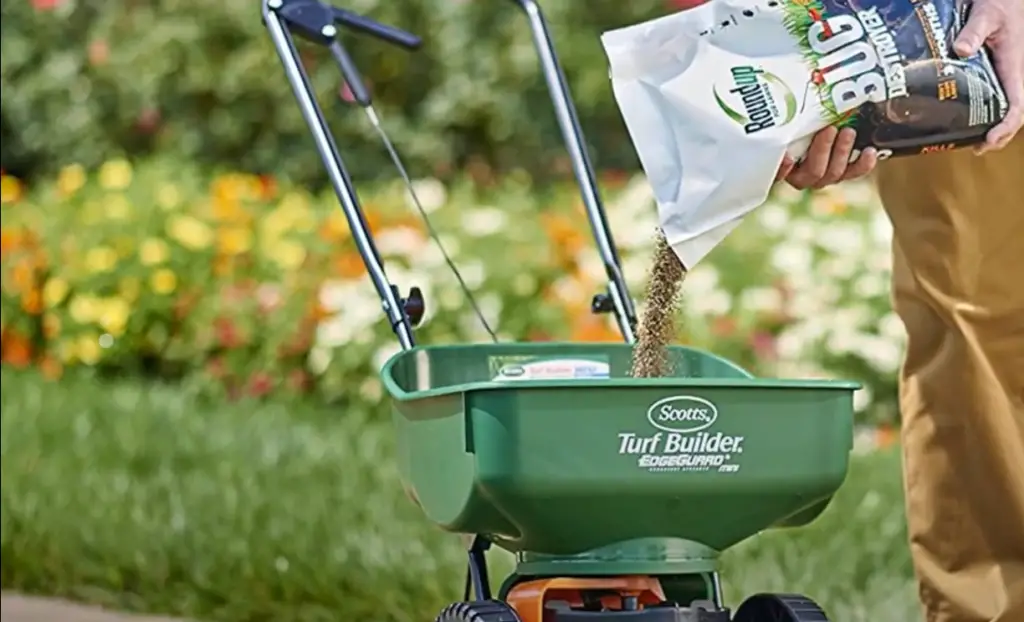
Talk to your veterinarian about the best tick treatment for your pet, as they will be able to recommend a product that is safe and effective. Make sure to follow the directions carefully and always store tick treatments out of reach of children and pets. [7]
How Often Should You Spray Your Yard?
The general rule of thumb is to spray your yard every three weeks. This will help to keep the tick population down and make your yard less inviting to them. Of course, you’ll need to adjust this depending on the products you’re using and the results you’re seeing.
FAQ
What is the ideal tick treatment for a backyard?
The ideal tick treatment for a backyard will vary depending on the size of the yard and the level of infestation. For smaller yards, spot treatments with products that contain pyrethrins or permethrin can be effective. For larger yards, broadcast spraying with products that contain carbaryl or bifenthrin can provide better coverage.
Should I spray my garden for ticks?
The short answer is yes – if you live in an area where ticks are prevalent, then it’s a good idea to spray your garden with an insecticide that will kill them. There are a number of different products on the market that can do this, so it’s worth doing some research to find the one that’s right for you.
In general, tick killers fall into two main categories: those that contain chemicals and those that don’t. Chemical-based products usually work by killing the ticks on contact, while non-chemical products work by repelling them. Both have their advantages and disadvantages, so it’s worth considering both options before making a decision.
If you’re going to use a chemical-based product, make sure to read the instructions carefully before applying it. In most cases, you’ll need to apply the product to your lawn and garden regularly in order to keep the ticks at bay.
Non-chemical products usually contain natural ingredients that repel ticks, such as essential oils. These products are generally considered to be safer than chemical-based ones, but they may not be as effective.
Whichever type of product you choose, make sure to follow the instructions carefully and reapply it regularly in order to keep your yard tick-free.
Do ticks survive in mowed grass?
No, ticks do not survive in mowed grass. If you have a tick problem on your lawn, it is likely because there are areas of tall grass or weeds that the ticks are using as hiding places. Ticks will also often attach themselves to animals that frequent your yards, such as deer, rabbits, raccoons, and opossums. To reduce the tick population in your yard, you need to remove their hiding places and make the environment less hospitable for them. This can be done by regularly mowing your lawn and trimming back any vegetation that is close to ground level. You should also consider treating your yard with an insecticide designed to kill ticks. When using any pesticide product, always follow the label instructions carefully.
What is the greatest dog tick repellent?
There is no definitive answer to this question as different dogs may have different reactions to repellents. Some of the more common tick repellents used on dogs include products that contain pyrethrins, permethrins, or Amitraz. You should consult with your veterinarian to determine which repellent would be best for your dog. In general, it is always a good idea to start with a small amount of repellent and increase the amount if needed. Be sure to follow the label directions when using any type of pesticide on your pet.
Is there a connection between uncut grass and ticks?
Ticks are more likely to inhabit areas of long grass, so it stands to reason that keeping your lawn short will help to keep ticks away. Of course, this isn’t a foolproof method – ticks can lurk in gardens and other landscaped areas as well – but it’s a good place to start.
There are a few different types of products you can use to kill ticks on your lawn. The most common are insecticides, which come in both chemical and natural varieties. There are also nematodes, which are tiny parasitic worms that feed on insects like ticks. And finally, there are some Tick Killers for Lawns reviews that mention using things like diatomaceous earth or essential oils.
What length of grass do ticks prefer?
Ticks prefer long grass, as it provides them with more cover and makes it easier for them to attach themselves to a passing host. If you have tick-infested property, keep the grass cut short and consider removing any dense vegetation that may provide shelter for these pests. You should also clear away any leaf litter, woodpiles, or other debris that might serve as a hiding place for ticks. Finally, make sure to keep your lawn well-watered, as ticks are attracted to dry areas. If you want to keep your home less appealing to ticks and decrease the chance of exposure, follow these easy instructions.
How long should you aerate your yard?
The standard practice is to aerate your lawn at least once every year. This means that if you have cool-season grass, you should aerate in the spring or fall. And if you have warm-season grass, you should aerate in the summer.
There are a few exceptions to this rule. If your lawn is heavily used (for example, if you have kids who play on it all the time), then you may need to aerate more frequently. Likewise, if your soil is particularly compacted, you may also need to aerate more often.
If you’re not sure how often to aerate your lawn, ask a local landscaper or lawn care professional for advice. They’ll be able to assess your lawn and give you a tailored recommendation.
How do you know if your lawn needs aeration?
There are a few telltale signs that it’s time to aerate your lawn. If you see any of the following, it’s a good indication that aeration is needed:
-Thatch build-up: This is when there’s an excess of dead grass, leaves, and other organic matter on the surface of your lawn. Thatch can prevent water, air, and nutrients from reaching the roots of your grass, which can lead to unhealthy turf.
-Compacted soil: Soil becomes compacted over time due to things like foot traffic or heavy equipment. This can prevent water and nutrients from reaching the roots of your grass.
-Pest problems: If you’re seeing more insects or diseases on your lawn, it could be a sign that the thatch layer is too thick or the soil is too compacted.
-Slow growth: If your grass isn’t growing as quickly as it used to, it could be a sign that it’s not getting the nutrients it needs. Aeration can help solve this problem by improving air circulation and water uptake.
If you see any of these signs, aeration is likely needed.
Is it possible to apply permethrin to my yard?
Yes, it is possible to apply permethrin to your yard in order to kill ticks. However, you should be aware that permethrin is a pesticide and should be used with caution. Be sure to read the label carefully before using it and follow all directions. You should also take care not to allow children or pets into the area until the pesticide has dried completely.
If you’re looking for a more natural way to control ticks in your yard, consider using diatomaceous earth. Diatomaceous earth is a powder made from fossilized algae and it works by dehydrating insects that come into contact with it. It’s safe to use around children and pets and can be applied directly to your lawn or garden beds. Simply sprinkle it around the perimeter of your yard and reapply as needed.
Another option for tick control is to create a barrier between your yard and its natural habitat. Ticks usually live in wooded or bushy areas, so keeping your lawn trimmed and free of debris will help to discourage them from setting up camp in your yard. You can also install a fence around your property to further deter ticks from entering.
What do you need to make your own tick killer?
You’ll need some basic supplies to make your own tick killer, including:
- A spray bottle
- White vinegar
- Water
- Dish soap
- Essential oils (optional)
To make the tick killer, simply mix equal parts of white vinegar and water in the spray bottle. Add a few drops of dish soap to help the mixture stick to surfaces. For extra protection, you can add a few drops of essential oil like lavender or eucalyptus. Shake well and spray on any areas where ticks are likely to congregate, such as tall grasses or bushes. Reapply as needed.
Tick killers made with natural ingredients like vinegar and essential oils are safe for use around children and pets. If you’re concerned about using chemicals in your yard, this is a great alternative. However, it’s important to note that vinegar won’t kill ticks on contact. It will only repel them and make it easier to spot them so you can remove them manually.
There are a few things to keep in mind when using any kind of tick killer. First, always read the label carefully and follow the instructions. Some products may be harmful to plants or animals if used incorrectly. Second, remember that tick killers are not 100% effective. They will reduce the number of ticks in your yard, but they won’t eliminate them completely. Finally, be sure to take precautions to avoid being bitten by a tick even if you’re using a tick killer. Wear long sleeves and pants when working in your yard, and perform a full-body check for ticks after spending time outdoors.
If you’re looking for a natural way to keep ticks out of your yard, DIY tick killers are a great option. With just a few simple ingredients, you can make your own tick spray that is safe to use around children and pets. Keep in mind that DIY tick killers won’t be 100% effective, but they can help reduce the number of ticks in your yard.
Useful Video: The BEST Insect Killer For Your Lawn | Bioadvanced Complete Insect Killer
Conclusion
When it comes to choosing the best tick killer for your lawn, there is no one-size-fits-all solution. The best approach is to consider the specific needs of your lawn and choose a product that will address those needs. With so many products on the market, it can be difficult to know where to start. Our reviews and buyer’s guide will help you narrow down your options and find the best tick killer for your lawn. Armed with this information, you can keep your lawn free of ticks all season long. Thanks for reading!
We hope you enjoyed this article! If you have any questions or comments, please feel free to reach us. We would love to hear from you!
Happy Lawning!
References:
- https://www.webmd.com/skin-problems-and-treatments/ticks-and-the-diseases-they-spread
- https://knockoutpest.com/what-causes-tick-infestations/
- https://www.domyown.com/how-to-check-for-ticks-a-488.html
- https://www.cdc.gov/ticks/avoid/in_the_yard.html
- https://www.thisoldhouse.com/lawns/22266301/best-tick-killers
- https://smithspestmanagement.com/blog/post/how-to-get-rid-of-ticks/
- https://www.petmd.com/dog/parasites/evr_dg_10_ways_to_stop_ticks_from_biting_your_dog
- https://www.masterlawninc.com/blog/how-many-times-fertilize-lawn-spray-weeds-grubs-fungus

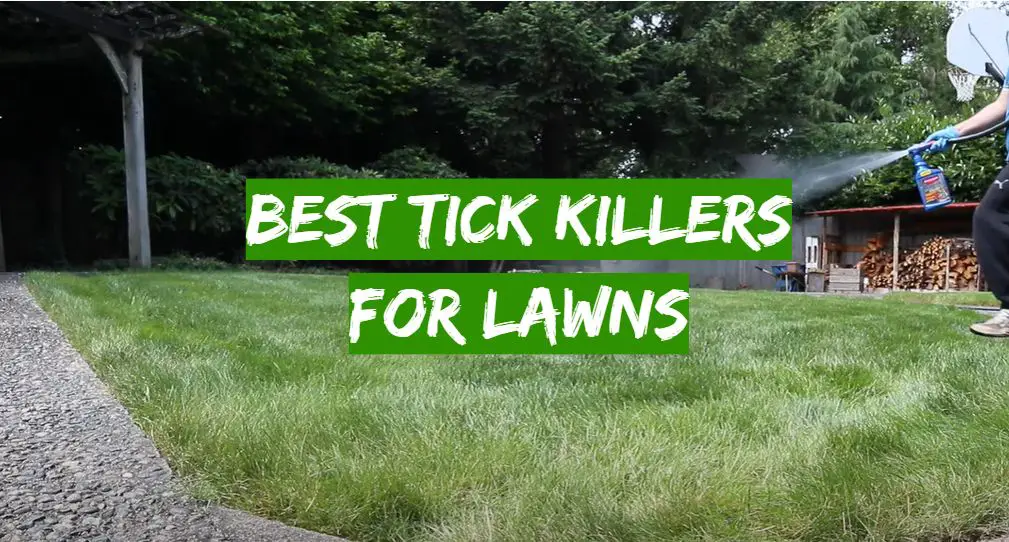



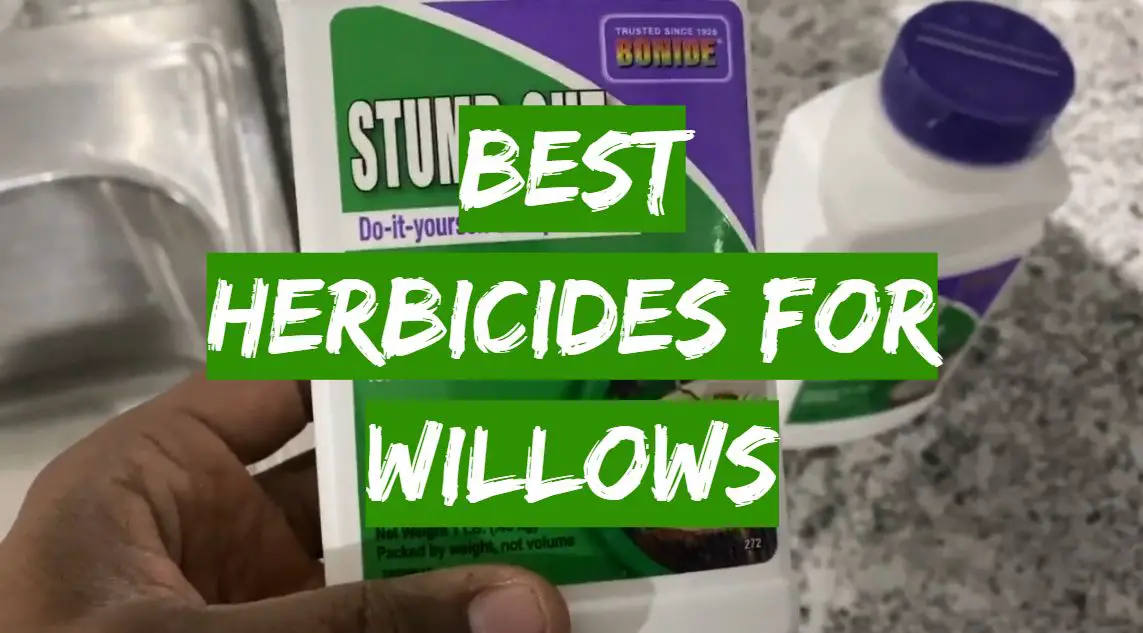
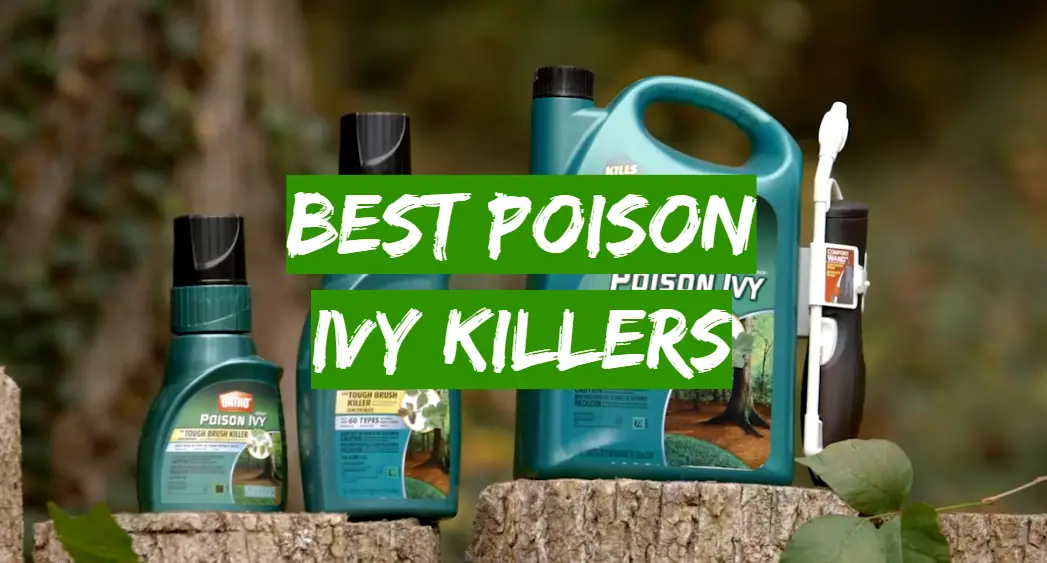
Leave a Reply
View Comments